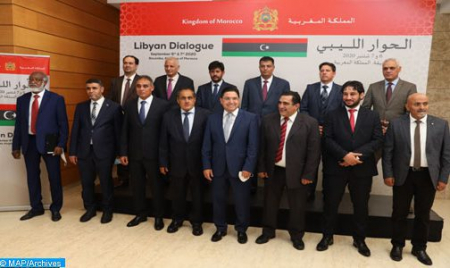
The Libyan Political Dialogue Forum (LPDF) failed near Geneva to reach a compromise on the constitutional approach to the December elections in that country. This situation now casts a shadow on the timetable leading up to the elections.
“It is unfortunate that, despite all possibilities, there is still no compromise,” said Raisedon Zenenga, a senior official of the UN Mission in Libya (UNMIL), on Friday evening, after the meeting. Libyans “will certainly be disappointed,” he also said, suggesting that the political body has lost credibility.
Despite five days of talks, instead of the planned four, and several formats to try to unblock divisions, the dozens of LPDF representatives did not reach an agreement. Worse, a committee set up to reconcile the differences was unable to submit a proposal to the plenary for a vote.
Throughout the week, the discussions near Geneva were very tense. The UN has had to reposition the LPDF members several times. Some of them, who a few months ago had approved a roadmap for elections in December, questioned the timetable for the elections.
New proposals were floated. Some were in line with the roadmap and some were not, said Raisedon Zenenga, who was facilitating the talks in the absence of UN envoy Jan Kubis, who spoke several times from a distance because of his coronavirus infection.
These oppositions could provoke a new political crisis in Libya. The LPDF was supposed to relay to the House of Representatives a compromise that should have allowed an electoral law to be endorsed this week. This would give the Electoral Commission some room to manoeuvre in preparing for the presidential and legislative elections in a united Libya after several years of conflict.
Provisional Prime Minister Abdelhamid Dbeibah had reaffirmed last week before the international community his resolve to guarantee the elections.
